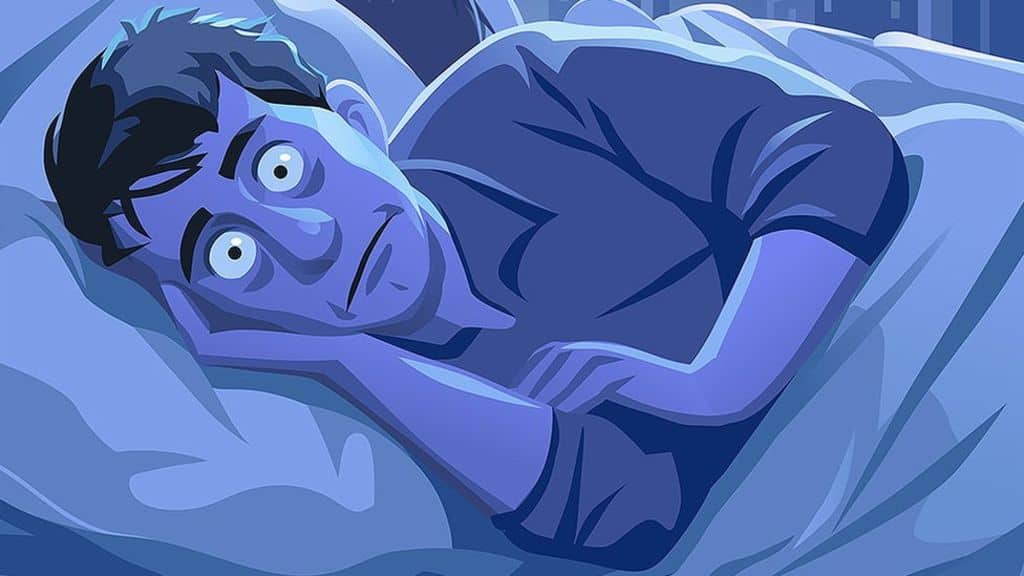I was very fortunate that my son does not cause too much trouble for both my wife and I. I would consider him as an all-rounder where he eats, plays and sleeps well the majority of the time. Despite going through growth spurts, he still manages to get to sleep fairly quickly after each feed, which is something I’m quite proud of. My wife and I usually have a routine to put him to sleep and it works every time. One of the techniques is the use of a white noise machine. We love it, it is one of the best things gifted to us for our baby. A white noise machine is a tool designed to block out loud noises and create a quiet sleep environment for babies. What I noticed in the last couple of weeks is that it not only helps babies to get to sleep a lot faster but it also benefits me in getting a night of restful sleep. One night after putting our baby to sleep and wheeling his bassinet back to our bedroom, we decided to test out whether a white noise machine does help us in getting more sleep. It turns out that according to our Fitbit, we were able to get to sleep a lot faster. In other words, we were able to sleep more each time despite getting woken by the baby every 3 or so hours. This little experiment of ours simply proves that it is no gimmick. Next time if you’re experiencing insomnia or restless nights, whether it’s a loud party across the road, a barking dog from your neighbour or just a cracking sound from the wooden floor. I would strongly recommend getting a white noise machine to drown all the disturbance.
As a matter of fact, a patient of mine mentioned to me earlier this week about how she has had terrible sleep due to her husband’s infamous talent of producing a deep soprano type snore every single night. She tried every method available to help her sleep. Every night she had to go to bed at least half an hour earlier than him so that she can fall asleep before he revved his v12 engine. Unfortunately, a lot of the time, especially when she is not in a deep sleep stage, she would be woken up by his snore and never able to get back to sleep. Sequentially she resorted to having her GP to prescribe her with some sleeping pills. I told her that dependency on sleeping tablets to help her get to sleep is not a habit she should get into. Yes, sleeping tablets can initiate sleep and get you to a shallow sleep state. However, it’s never intended to get you to the deep sleep stage where your mind and body could recover fully from a hard day of concentration. Getting into a good sleep hygiene practice would be ideal in her case and I also suggested her to give white noise a go.
What is white noise?
Some of you might wonder what exactly white noise is. White noise is a consistent noise created by combining low, mid and high-frequency sounds. To understand this a lot better is to assimilated yourself in a lecture room. If you are surrounded by a few of your friends, you’ll be able to pinpoint which voice belongs to which of your friends. However, if you fill out the whole room with 100 people and they are all talking at the same time. Then it would be extremely hard to tell whose talking as all voices blended together. This is exactly how white noise works by drowning all frequencies so that no one particular sound stands out from the rest. Now going back to my patient earlier, the reason why I believe white noise could be worth trying for her is that it could potentially drown out the low pitched frequency from her husband’s snore to help her brain to ignore the unpleasant stimulating sound and help her drift off to sleep.
How will it help with your sleeping?
So how exactly white noise help with sleeping? I know it sounds absurd- that noise that makes you sleep!? Don’t be silly. This is probably what many of you would be wondering in your mind right now. However, what we need to understand is that a consistent flat noise with the same amplitude or intensity is not the issue waking you up at night but rather the real problem is the sudden change in noise frequency which your brain picks up while you’re sleeping. Why white noise is particularly good at counteracting a sudden loud noise and helping you to stay asleep is essential because it masks any potential noise that could disrupt your sleep at night by filling out the frequency gap between the background noise and a sudden loud sound. This raises the threshold so that the dripping tap or your neighbour’s barking dog is no longer audible.
For all the new parents out there, who wonder why white noise for a baby can be soothing. It Is because the monotonous sound reminds babies of being in their mother’s womb. As a matter of fact, during the third trimester, babies can hear the heartbeat of their mother and the monotonous sound of the womb. Playing white noise can mimic the muffled tones which in turn has a calming effect for babies. According to the American Academy of Paediatrics, white noise for babies should not be louder than 50 decibels. Also, it is recommended to place the machine at least 2 metres away from your baby’s crib or bassinet. Otherwise, you could damage babies’ hearing.
What does the evidence show?
Multiple studies have shown the benefit of white noise in helping people to sleep better in loud environments. A study published in the Journal of Caring Sciences in 2016 looked at 60 patients in the coronary intensive care unit. The study indicates a significant increase in the amount of time patients spend asleep while using a white noise machine. Their average sleep time has risen by 49% from 4.75 hours to 7.08 hours per night compared to no obvious changes observed in patients where a white noise machine was not used.
An older study back in 1989 looked at 2 groups of 20 babies between 2 and 7 days old. What the study identified was that 80% of babies fell asleep within 5 minutes in response to white-nose compared to 25% of babies who fell asleep without any white noise in the controlled group.
To this date, studies have shown the benefit of white noise in helping us to sleep better and longer. However, more research is needed to look at the long-term benefit and impact it has on managing insomnia.
The data does points to a winning streak for white noise in helping you in getting a good night sleep despite the kind of sound that your mind could be tuned to during the night. So why not try giving it a go!
To a better night sleep
Chris
Pharmacist



















